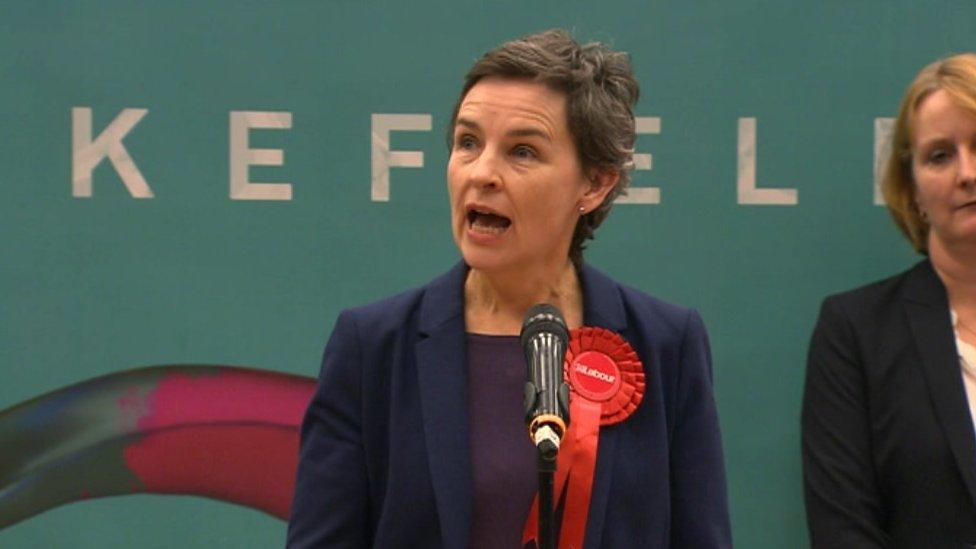Labour losses in 2019 election 'felt like slowest slap in the face'
- Published
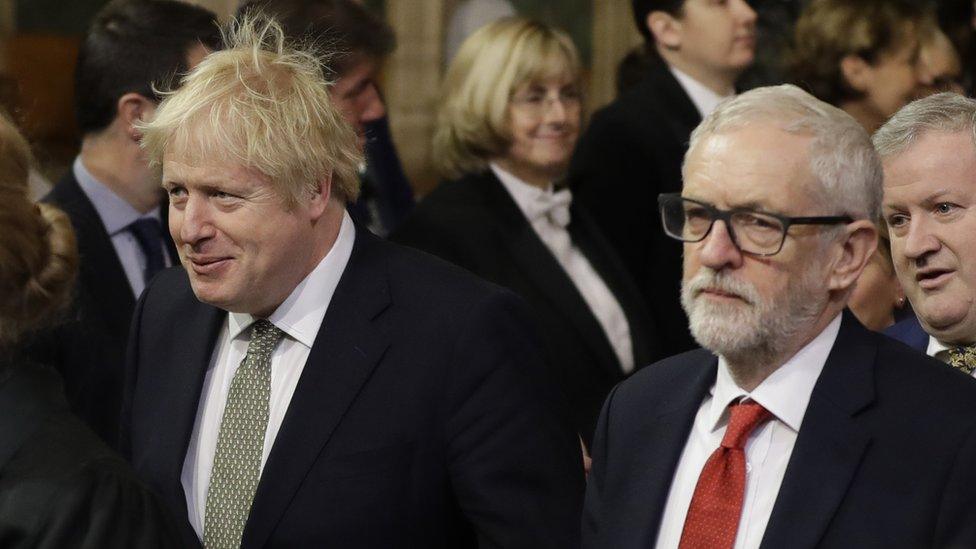
Boris Johnson's Conservative Party won 365 seats to Labour's 203
A year ago this weekend Labour's "red wall" across the north of England crumbled.
In Yorkshire and Lincolnshire the Conservatives turned 10 previously red seats blue, as Labour slipped to its worst election defeat since 1935.
Among the constituencies to change hands were seats that had not returned a Tory MP since their creation more than 100 years ago.
Now, 12 months on, voters and politicians have been reflecting on the events of 12 December 2019.
The voter
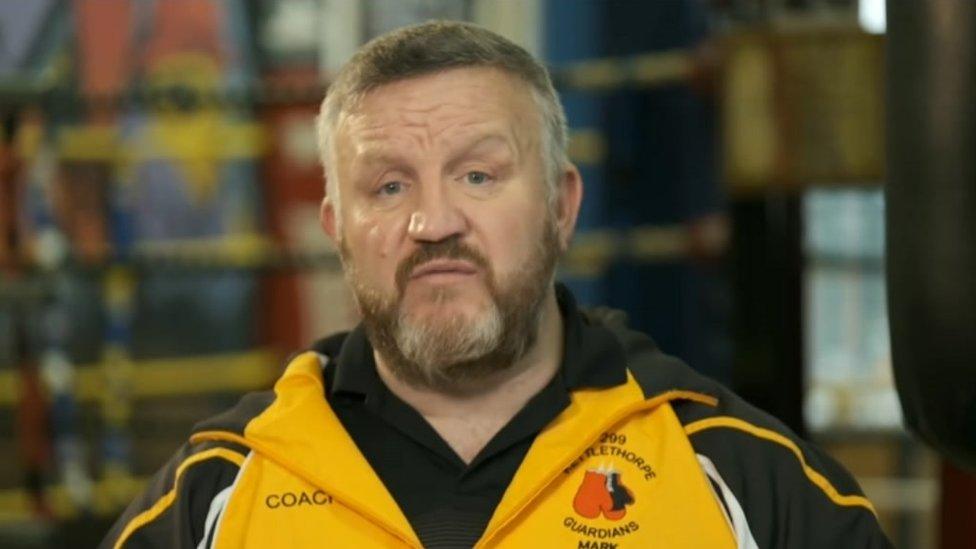
Mark Roberts voted for the Conservatives for the first time in 2019
Mark Roberts, from Wakefield, voted Conservative for the first time in 2019, helping Imran Ahmad-Khan topple Mary Creagh in a seat held by Labour since the 1930s.
The taxi driver, who also runs a community boxing gym, told the BBC's Politics North programme: "I had voted Labour all my life. For me to vote Conservative was like pulling teeth.
"[But] I voted Conservative [in 2019] because I think Labour took me for granted.
"We never saw any impact that Labour were doing round here whatsoever, and I think it had just got where they expected people to vote for them."
But, despite lending Mr Ahmad-Khan his vote in 2019 he said he was unsure which party would get his support now.
"Would I vote Conservative again? At the present moment in time I don't think I would, no," he said.
The winners
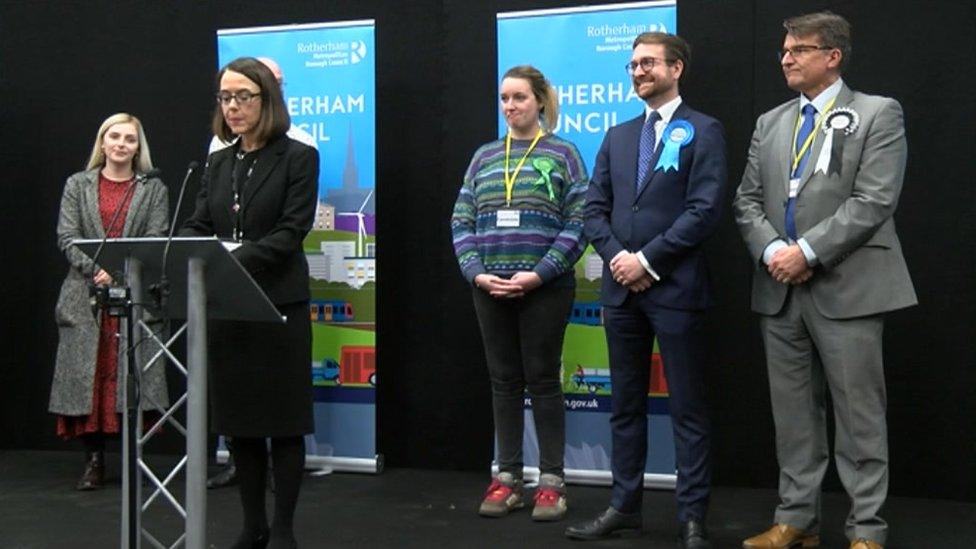
Alex Stafford, second from right, won in Rother Valley after securing 45.1% of the vote
Alex Stafford MP was one of the Conservatives' big winners of 2019.
Rother Valley, in South Yorkshire, had been a Labour stronghold since it was created in 1918 - never once falling out of the party's grasp.
But 12 months ago it turned blue, with Mr Stafford securing 21,970 votes to Labour candidate Sophie Wilson's 15,652.
Despite the area having been in Labour hands for more than 100 years Mr Stafford said he felt residents were ready for change.
"I think from the get-go I thought I could win," he said.
"And, as time went on, as I kept knocking on doors, the more and more people I spoke to, I thought 'yes, we are going to win'.
"Again and again I heard the same thing, 'we've been left behind. We've been neglected by Labour. They are taking us for granted'."
He said many of the people told him they would be voting Conservative despite saying their fathers and grandfathers would be "spinning in their graves".
Fellow victor, Mr Ahmad-Khan said it was now "vitally important" that those people who "loaned us their votes stay on board".

The seats in Yorkshire and Lincolnshire that changed from red to blue:
Colne Valley
Dewsbury
Don Valley
Great Grimsby
Keighley
Lincoln
Penistone & Stocksbridge
Rother Valley
Scunthorpe
Wakefield

The losers
A report published earlier this week by Labour in the North said the 2019 result had been a long time coming, with one of the authors, Bradford South MP Judith Cummins, describing it as "the slowest slap in the face ever".
It said majorities of more than 20,000 which the party had once commanded in the north had been shrinking since 1997 while its number of local councillors had dropped from nearly 3,000 to fewer than 2,500 during the same period.
The study warned that "if not addressed, these figures signal a continuous decline" and suggested that without action in those constituencies "there is a potential that they may be lost for good".
The report authors said they did not seek to blame any one single factor - instead focusing on "longer-term trends that have led us to this point".
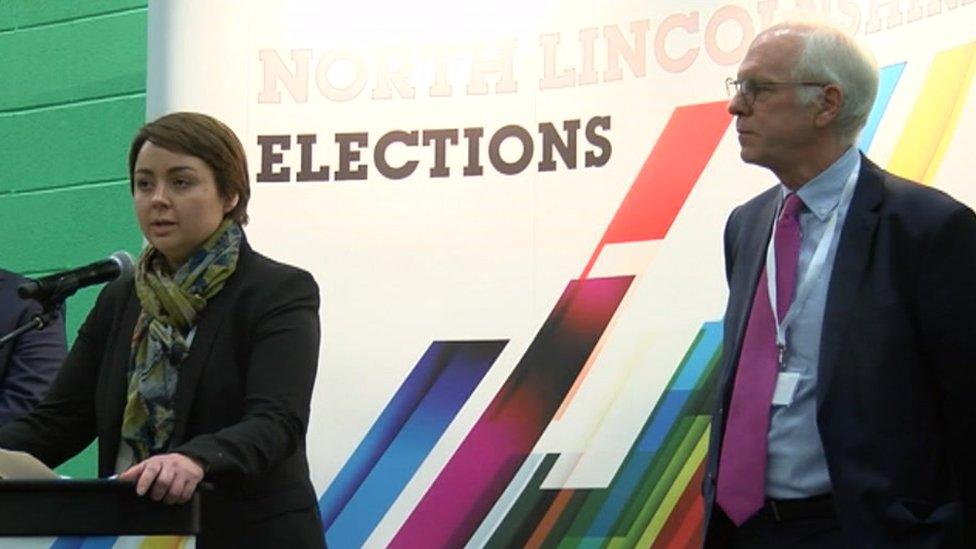
Nic Dakin, right, had been MP for Scunthorpe since 2010 before his loss to Holly Mumby-Croft, left
But former Scunthorpe MP Nic Dakin, who was among those Labour candidates to lose their seat, believes the collapse of the party in the north was largely due to Jeremy Corbyn's leadership.
Mr Dakin, who lost to Holly Mumby-Croft by 20,306 votes to 13,855, said he knew his number was up the moment what he describes as the "kamikaze election" was called.
"As soon as the general election was called I knew I would lose, it was pretty obvious," he said.
"I knew what it was like on the ground and how people were feeling about certain issues so I knew that it was highly unlikely that we could win.
"I think [Brexit] was an element in the thinking but I do not think it was as significant a factor as their concern about the leadership."


Red wall, blue wall. Whichever Westminster headline phrase you want to use it's important to remember it's all about people.
Some of the seats Labour lost here once had majorities of over 20,000. Some elected their first ever Conservative MP in 2019.
Doncaster was where the Labour Party started among railway unions - last year it elected a Conservative MP in Don Valley.
Next door is Rother Valley, a similar constituency made up of former pit villages. It also went blue. The Rother Valley MP has no Conservative colleagues at all on his local council.
Labour for the North's report says the party should have seen it coming. Its challenge is to win back people who had voted red all their lives.
The challenge for those new, blue, MPs is to make those votes permanent rather than borrowed.

In Don Valley, Caroline Flint was also among the Labour casualties, losing the seat she had held since 1997 and the party had held since 1922.
Like Mr Dakin, she said she knew her seat was "doomed" the moment the election was called, citing people's anger over Brexit and Mr Corbyn's "unpopular" leadership.
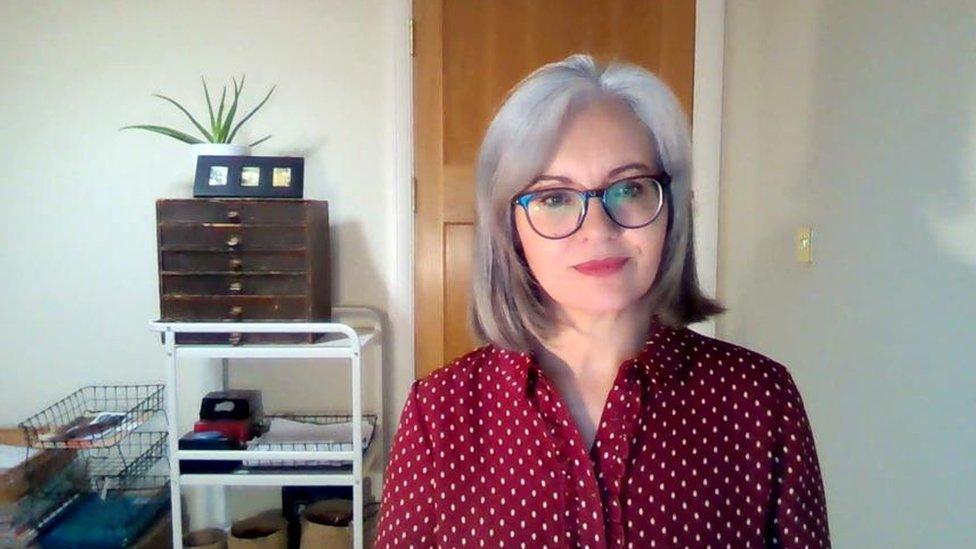
Caroline Flint's Don Valley seat elected an Conservative MP for the first time in 2019
"Many people in the days leading up to the election and since have said I didn't lose my seat, Labour lost the seat," she said.
"There are now 24 seats, including my own, that had never had a Conservative MP but do today and that's because we pushed to the brink the loyalty of those Labour voters in those areas until they felt on 12 December 'we're voting Tory'."
She said Labour needed to stop being a party only for cities and university towns and work hard to win back the support of "traditional working-class seats".
"They need to feel that the Labour Party likes them, respects their values, respects their decisions even if they don't agree with it," she added.
Like your politics podcasts a little more northern? Listen to Yorkshirecast here.
That view is shared by Yvette Cooper, who retained her seat in Normanton, Pontefract and Castleford, but saw her majority cut from 14,499 to 1,276.
"Labour has got to earn back trust and we've got to work at it," she said.
"It was a tough result for us last year and that means being back in our communities, working hard to get people through tough times."

Follow BBC Yorkshire on Facebook, external, Twitter, external and Instagram, external. Send your story ideas to yorkslincs.news@bbc.co.uk or send video here.
Related topics
- Published10 October 2020
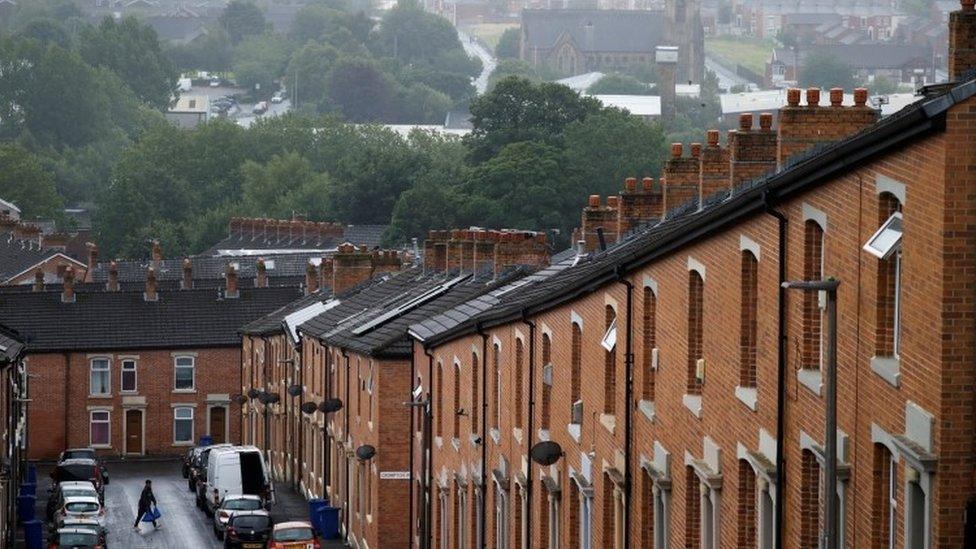
- Published13 December 2019
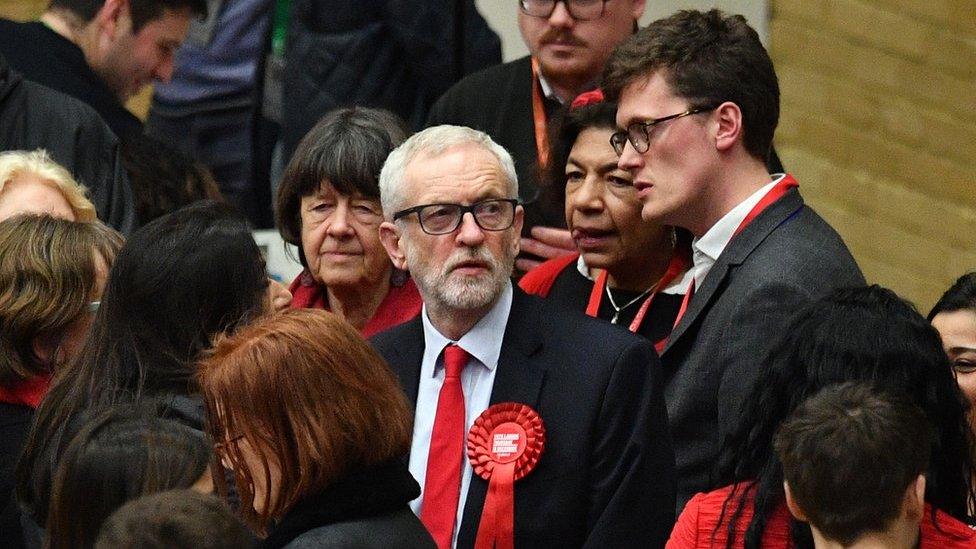
- Published13 December 2019
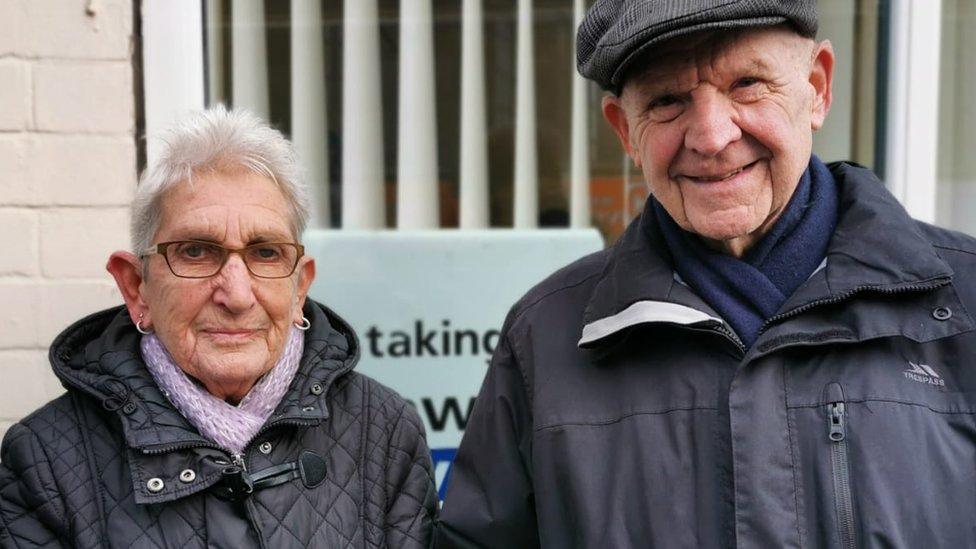
- Published13 December 2019
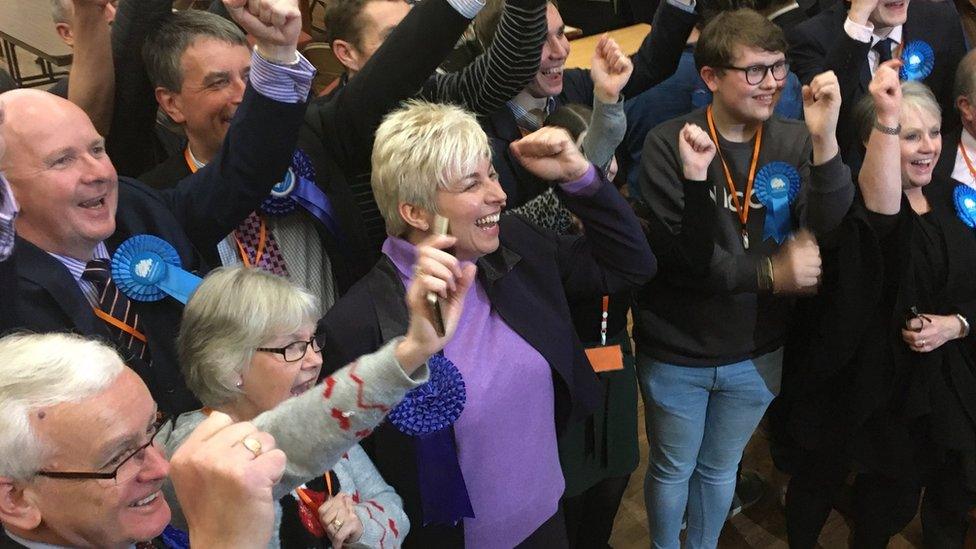
- Published13 December 2019
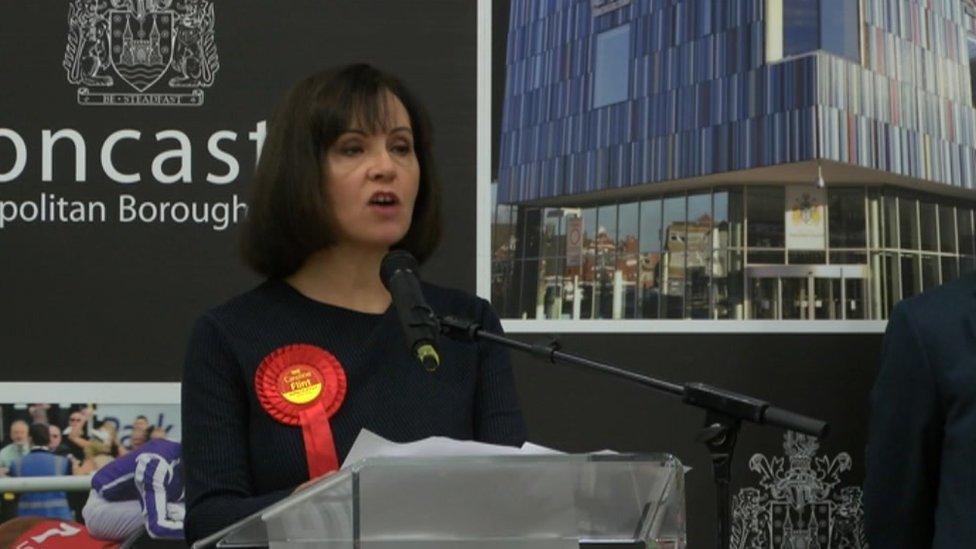
- Published13 December 2019
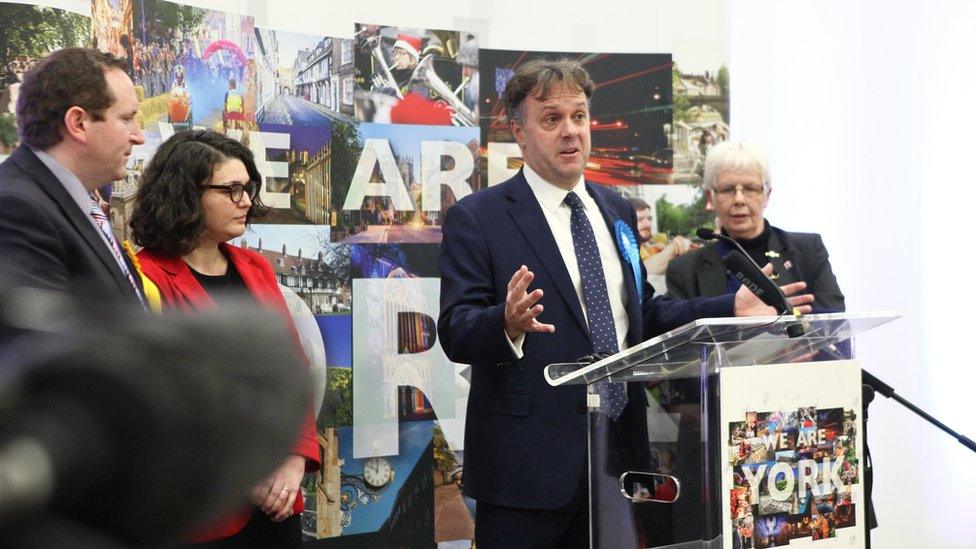
- Published13 December 2019
